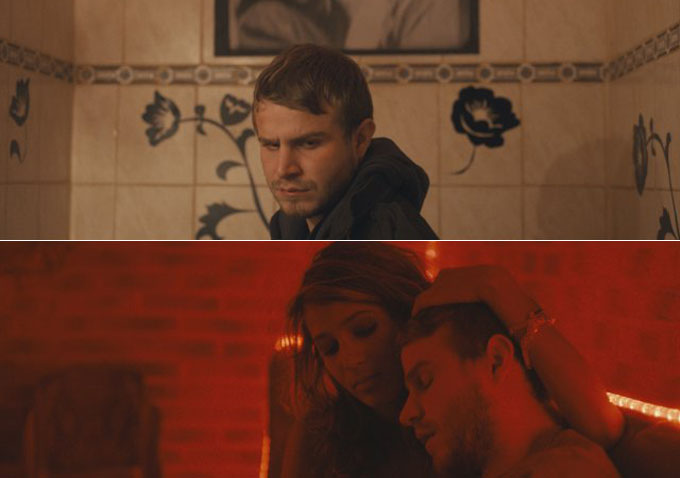 Simon (Brady Corbet) is lost. After being dumped by his high school sweetheart after a relationship that ran the length of their college years, the newly graduated, newly single American flees to Paris to get away from it all and find himself. Of course, the problem with undertaking such a journey of self-discovery is assuming that one will like what they find…
Simon (Brady Corbet) is lost. After being dumped by his high school sweetheart after a relationship that ran the length of their college years, the newly graduated, newly single American flees to Paris to get away from it all and find himself. Of course, the problem with undertaking such a journey of self-discovery is assuming that one will like what they find…
Unfolding like Roman Polanski’s take on "The King of Marvin Gardens" while simultaneously serving as a suitable spiritual sequel to the director's debut, "Afterschool," in which the male desire to connect meaningfully with others is frayed and warped by life experience, "Simon Killer" is Antonio Campos’ latest chilly, chilling character study, with Corbet effectively replacing Ezra Miller, who led the previous film, as a neuroscience major who studied how the eyes and the brain relate, but has a seriously loose wire between his own brain and his heart.
Simon seems smart, and is handsome to boot, but his public encounters with young women and angry men reveal a fundamental meekness. The targets of his longing progress gradually from porn chat girls to prostitutes like Victoria (Mati Diop) to peers like Sophie (Lila Salet), while his confrontations on the street are escalated from bumping into one guy and earnestly apologizing, threatening and then fleeing another, before finally blowing off a third when the stranger simply asks Simon for change.
Often spouting off about sensual disassociation with regards to his ocular studies, he fails to notice the frequency with which he himself misinterprets French – the results are alternately hilarious and heartbreaking – or the offhandedness with which he shuffles his iPod in order to suit the mood of devious deeds to come. Or does he? (It should be said that the film’s soundtrack, ranging from Spectral Display to LCD Soundsystem, is a fantastic, energetic blend of dance tunes, both reflective of Simon’s carefree idealism and plain catchy in its own right.)
All the while, Campos’ camera hovers behind him, occupying the same headspace as he flirts, dances and desperately tries to finance his short-term fantasy of Parisian bliss. Often shooting the action with sweeping pans a la "Afterschool" (a film more transparently indebted to the clinical approach of Michael Haneke), he tends to keep shots at the consistent level of heads bobbing along back alleys, hands as they hold onto one another, hips as they thrust together, until the routine is unsettled by bodies falling where they ought not to be, with hands grasping at feet and other indications of unease quietly coming to the forefront.
Simon holds some misshapen notions of romance, of wanting to assert control in the bedroom but be cared for otherwise, just one of a few critical indications that our protagonist harbors deep maternal issues. On more than one occasion, he turns up at a woman’s doorstep, broke and broken, and rarely do they see through his self-sabotaging demeanor. Simon doesn’t want to be with his ex-girlfriend again, but he wants exactly what they had, to preserve the balance of a healthy relationship or, at least, to maintain the illusion of one.
As his confusion and recklessness progresses, Corbet’s air of civility slides away. In an increasingly rare moment of honesty, he admits that, while his mother likened him to a fox, he has always fancied himself to be more of a lion. What ultimately guides Simon is arguably more of a reptilian mentality – he slithers into the lives of strangers and quickly strikes once provoked – yet the essence remains: that predatory instincts eventually take hold, assuming that they hadn’t been lurking just beneath the surface all along.
The film meanders from time to time as Simon finds his way around the City of Lights and his own skin, but Corbet’s performance is a darkly rich one in every scene, not far from Matt Damon’s sociopath-turned-psychopath turn in "The Talented Mr. Ripley" but distinctively unnerving in crafting an eventually hollow façade out of this nice, young, very lost man. Diot and Salet give fine performances, enough to distinguish themselves beyond mere interchangeable objects of desire, but they each serve a primary purpose as attractive, attentive foils for Corbet’s eroding sense of humanity.
Even the earlier, more innocuous stretches of the story find themselves called into question as to just how reliable a perspective the film could be providing. Campos co-produced last year’s "Martha Marcy May Marlene," just as his partners produced Afterschool and this film, continuing a theme of psychological instability fueled by a combination of corroded trust, sexual curiosity and youthful naïveté. In this case, we may never learn Simon’s proper surname and the title may (or may not) readily reveal the nasty little niche that he finds for himself, but nonetheless, "Simon Killer" transforms his downward spiral into a noir-tinged, noose-tightening ordeal and confirms Antonio Campos, if not the entire Borderline Films outfit, as a filmmaker/team to be reckoned with. [B]





